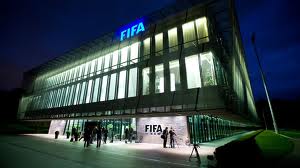By Andrew Warshaw
December 30 – Candidates for FIFA president have exactly one month from yesterday to decide whether or not to go for the most powerful job in world football.
Prospective contenders have been keeping their powder dry but have until January 29 – four months before the election itself – to show their hand one way or the other.
So far only the present incumbent, Sepp Blatter, and one of his former senior employees, Jerome Champagne, have announced they intend to stand, with Blatter telling reporters in Marrakesh following the pre-Christmas executive committee meeting that they would “probably see my name” on the list of final contenders.
The question is whether, for the second consecutive time, the veteran Swiss will run unopposed.
In what is clearly becoming an atmosphere of brinkmanship, January promises to be an intriguing time with candidates unlikely to make up their minds until the very last minute, using the next four weeks to make a final assessment of how much support they could get and gauge whether they meet FIFA’s strict election criteria.
Whether the multi-lingual Champagne, who has some genuinely laudable ideas for change but is regarded by many within football’s heirarchy as a rank outsider, will go all the way and take on Blatter remains unclear.
Chile’s Harold Mayne-Nicholls, the man who led FIFA’s technical inspection team into all nine candidates that bid for 2018 and 2022, has announced he is considering standing but may decide it is too much of a risk given that he under investigation by FIFA’s ethics committee as part of its probe into the bidding process.
Mayne-Nicholls insists he has done nothing wrong and that the probe won’t affect his decision but you do have to wonder.
Speculation that Jordan’s prince Ali bin al-Hussein, the committed and passionate reformist who loses his FIFA vice-presidency in the Spring, has made up his mind to stand is wide of the mark especially given the split in his own Asian region.
Which begs the question as to whether an as yet unknown alternative candidate is being groomed behind the scenes to suddenly enter the fray. With Michel Platini having announced he won’t be leaving UEFA, Europe is still keen to find a credible contender to take on Blatter.
One idea apparently being floated is that several confederations each put up a candidate as one way of taking votes away from Blatter. But that ignores the fact that he is still hugely popular in vast areas of the world despite FIFA being plunged into crisis over ethics investigator Michael Garcia’s resignation and the subsequent decision to make public a redacted version of his 430-page World Cup dossier.
After two years of investigation, Garcia resigned before the Executive Committee could even discuss publishing his report. “No independent governance committee, investigator, or arbitration panel can change the culture of an organization,” he wrote in his resignation statement.
That heaped pressure on Blatter, who turns 79 in March, and who for years has appeared untouchable. The feeling among many insiders in Marrakesh was that he may have lost some of his omnipotence.
That may be so but, as previously stated, Blatter can count on considerable support, not least from Africa and Asia whose two blocs of votes would comfortably outweigh those from Europe.
Unless, that is, his critics have found a way of doing the maths in a different way and can somehow engineer enough anti-Blatter backing, on paper at least, to bring an end to a regime that, at election time, will have been in power for 17 years.
Contact the writer of this story at moc.l1745190157labto1745190157ofdlr1745190157owedi1745190157sni@w1745190157ahsra1745190157w.wer1745190157dna1745190157

